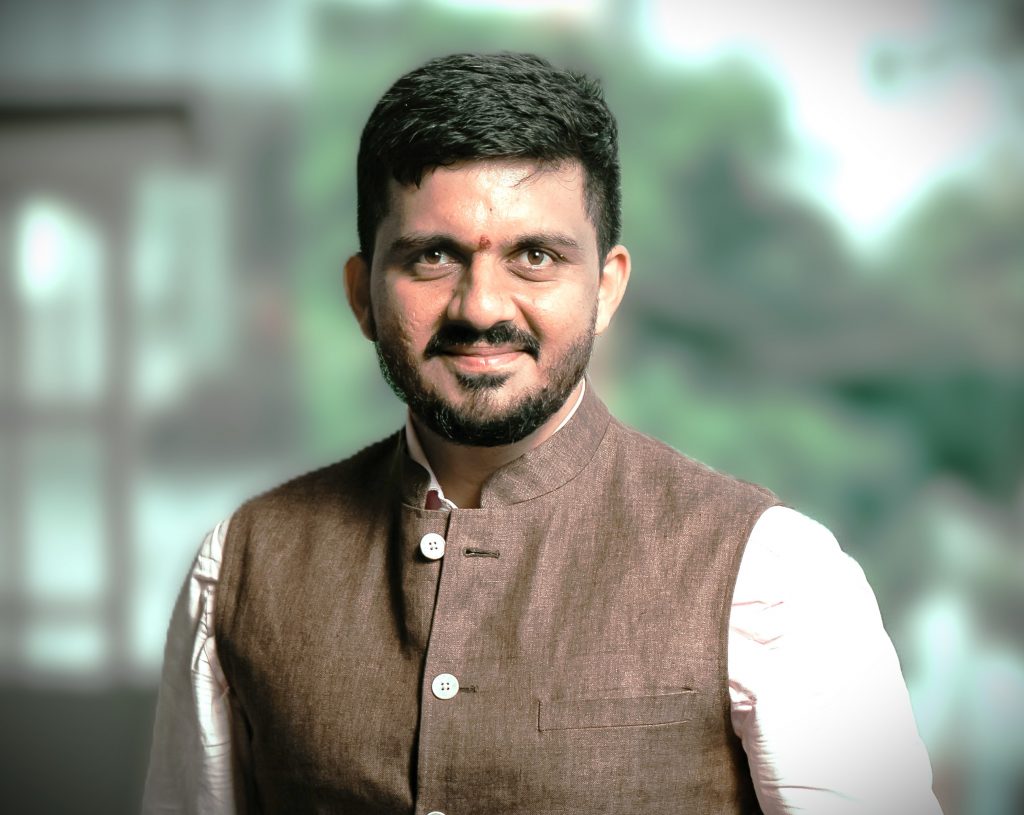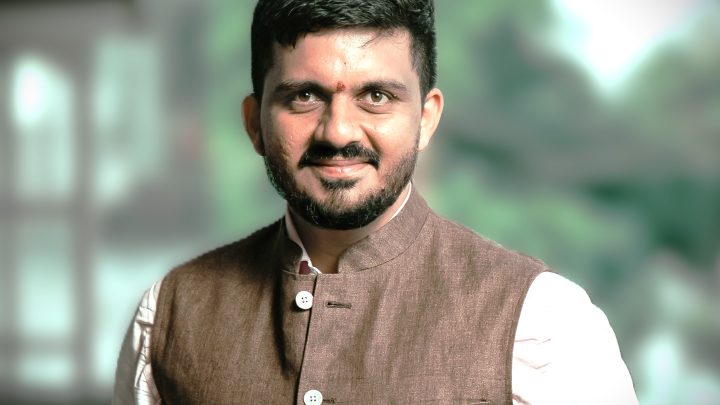Interviews
4585
0
0
“I firmly believe that maintaining an academic inclination enriches one’s understanding of the law and enhances professional growth.” – Raghava Parthasarathy, Founder of Office of Raghav Parthasarathy.
This interview was taken by SuperLawyer Team
Posted on May 29, 2025
This interview has been published by Anshi Mudgal and The SuperLawyer Team

What inspired you to pursue a career in law? Was there a particular moment or influence in your life that steered you in this direction?
During my school years, I developed interests in Social Studies, particularly History and Political Science. I was always intrigued by topics like civil and political rights, the Constitution, and the legal and regulatory framework that governs societies. However, when it came time to choose my stream in Plus-2, I opted for Science. This decision was heavily influenced by my parents, who believed that a background in Science would keep more academic and career options open. They often said that while one could shift from Science to Commerce or Humanities, the reverse was much harder. At the time, I wasn’t entirely happy with that decision. I felt disconnected from the subjects I was passionate about and often regretted not pursuing Humanities. But in hindsight, I now appreciate the wisdom behind my parents’ advice. Studying Science has given me the ability to grasp scientific and technological concepts with relative ease—an advantage I now value immensely. As I progressed through my Plus-2 education, it became increasingly clear that my true interests did not lie in Science. I found myself disengaged and uninspired, and I realized that continuing in this field would not fulfil me intellectually or personally. Transitioning to legal studies felt like a natural and inevitable step—a return to the subjects I was genuinely passionate about. Some of the then contemporary developments garnered my attention towards law, policy and governance. I was fortunate to have studied at JSS Law College, Mysuru, as it opened up many opportunities to explore along with like-minded friends and classmates.
What drew you to specialize in Energy Laws during your LL.M. at the University of Petroleum and Energy Studies, Dehradun? And now, as you pursue a Ph.D. at Gujarat National Law University, how has that academic journey shaped your legal perspective?
My inquisitiveness towards learning law led me to explore emerging and specialised areas which were niche and still developing at that point in time. After completing my graduation, I found my interests and inclination towards International Law and Diplomacy, Dispute Resolution like Mediation and Conciliation, Financial Markets, Energy laws among others. Very few universities in India, at that point in time, offered courses beyond the traditional subjects and Energy laws garnered my interest and drew me to explore and learn more about it. Continuing with the studies, I understood the legal framework in the energy sector, specifically Oil and Gas, Power sector has tremendous potential for professional practice and in academic research. Under the guidance of my supervisor Prof. (Dr.) Shanthakumar, Director, GNLU, I am working on a Regulatory framework for the Upstream Hydrocarbon sector in India, by re-examining the present framework.
Reflecting on your early years in the legal field, what formative experiences deepened your understanding of the law? Are there any moments or mentors that continue to resonate with you today?
After completing graduation and post-graduation, I gained varied and meaningful experience working under the guidance of my senior – Mr. S. Srinivasa Murthy, in Bengaluru. This foundational experience got me acquainted with nuances of litigation and client interaction. After working for a year, I had an opportunity to do Clerkship at the High Court of Karnataka. I was fortunate to work under the mentorship and guidance of Hon’ble Justice B.V. Nagarathna (now judge of the Supreme Court), then Judge at High Court of Karnataka. This Clerkship marked a major turning point for my career. It offered intricacies of judicial decision making, including interpretation of law and assessing its applicability in varied factual context. The most profound learning however, was, understanding how a judge approaches any matter, the temperament required to listen and analyse many cases on a daily basis. Clerkship opportunities, both at the High Courts and the Supreme Court, offers unparalleled insights for law graduates. The work entails preparing synopsis, case briefs, research and identifying applicable precedents, assisting in preparing articles, speeches among other duties. Clerkship fosters a deep sense of judicial discipline, highlights ethical boundaries, procedural clarity and broader appreciation of the role that courts play in delivering justice across broad spectrum of matters.
During your time at CEERA, NLSIU, you were involved in high-impact research and consultancy projects for institutions such as the MoEFCC, ISRO, and the Directorate of Municipal Administration. Could you share some insights into your experience there, and how your contributions influenced these projects?
Working as a Teaching Associate at CEERA, NLSIU, Bengaluru, I had the privilege to work in legal academia and research. Under the mentorship of Prof. (Dr.) Sairam Bhat and Prof. (Dr.) M.K. Ramesh, I was involved in workshops, conferences, classroom teaching, legislative drafting, and legal research. This hands-on experience, including client consultations and litigation work, enriched my academic delivery and deepened my understanding of law in practice. Collaborating with government departments such as the Directorate of Municipal Administration (GoK) and contributing to major legislative projects like the Climate Bill and Municipalities Bill provided valuable insights into policy and governance. CEERA has actively contributed in legal and policy reforms, implemented by the Government and its various departments. My time at CEERA was instrumental in shaping my perspective as a legal academic and researcher, and I was fortunate to learn from a diverse network of dedicated peers and professionals.
What motivated you to establish your own legal practice? What were some of the major challenges you encountered, and how did you navigate them?
Since 2022, I have been managing my independent legal practice in Jayanagar, Bengaluru, alongside my partner Mr. Vivek Raviprakash and our team of associates. Having been actively involved in client interactions early in my career, establishing my own chambers was a natural progression aligned with my passion for litigation. A key challenge has been building and sustaining a reliable clientele—an aspect many in independent practice will recognize. While acquiring clients is challenging, maintaining long-term relationships truly reflects a firm’s strength and professionalism.
Another systemic issue is the judicial backlog or ‘docket explosion,’ which has increased delays in case resolution. This challenge, however, has catalyzed the growth of alternate dispute resolution methods like arbitration and mediation, offering more efficient alternatives.
Drawing from both academic and litigation experience, I see a clear need to bridge the gap between legal education and practice. Initiatives such as moot courts, law fests, and intercollegiate sport events offer valuable platforms for students to gain exposure, build networks, and enhance their understanding beyond classroom learning. Encouraging such engagement fosters holistic growth and better prepares students for the realities of the profession.
You’ve appeared before a range of judicial and quasi-judicial bodies, from the High Court and other Tribunals. In your work on matters involving education and reservation policies, is there a particular experience that was challenging for you? How did you approach its legal and constitutional aspects?
Litigation, by its nature, involves addressing both simple and complex issues that often arise from the friction between societal expectations and the existing regulatory framework. Two important cases stand out, as it ultimately led to changes in laws and guidelines. One such case is Sripathi G. v. Union of India and Others (2024:KHC:43993-DB), where the petitioner, a former member of the District Consumer Commission, was barred from practising before any Consumer Commission in India under Rule 11(2) of the 2020 Model Rules. This restriction was arbitrary and without justification. Upon challenging the rule, and shortly after notice was issued, the Central Government amended the provision, effectively removing the prohibition and restoring professional rights to retired members.
Another notable case was Priyanka Patil v. Kendriya Sainik Board and Others (2023 SCC OnLine Kar 1), which involved constitutional issues of gender rights and discriminatory policy. The petitioner, daughter of a martyred ex-serviceman, was denied employment reservation benefits due to a clause that restricted ESM identity cards for female dependents only “till marriage or disability,” while no such condition applied to male dependents. The Karnataka High Court struck . down Clause 5(c) of the Guidelines as violative of Articles 14 and 15 of the Constitution. Following the judgment, the Kendriya Sainik Board revised its guidelines, establishing a more gender-equitable policy.
When approaching any matter, it is essential to strategize and compile all relevant documentation. Tools such as filing RTI applications for procuring official records, effective coordination with authorities, and timely communication via letters, emails, and notices are vital in building a strong case. In matters involving the constitutional validity of central guidelines, ensuring all necessary parties are included helps prevent procedural delays and keeps the focus on the core issue.
With your extensive background in both litigation and academia, what key advice would you give to young lawyers starting out, especially those who aim to bridge courtroom practice and policy engagement?
Based on my experiences since law school, I would like to reassure students who feel anxious about their future that a legal education opens up a wide array of opportunities. It is essential to take internships seriously, using them not just for exposure but also to develop key professional skills. In today’s evolving landscape, the legal profession is incredibly versatile and intersects with almost every sector of society. Career options range from traditional paths like the judiciary, advocacy, and clerkships, to roles as policy and legislative consultants, members of the armed forces through the JAG branch, corporate legal professionals, in-house counsels, Academics and Teaching, and ADR specialists such as arbitrators, mediators, and conciliators, Insolvency Professionals and freelancing. Emerging fields like legal tech, energy laws, AI and data privacy among other upcoming areas present promising prospects.
The key lies in staying vigilant and proactive in identifying and pursuing these opportunities. My own journey over the past years in practice has been both fruitful and enlightening. I firmly believe that maintaining an academic inclination enriches one’s understanding of the law and enhances professional growth. It also enables legal practitioners to engage meaningfully with stakeholders beyond the courtroom, contributing to broader conversations in their areas of interest. I am a firm believer that Academicians must be permitted to practise and appear in courts, as that would enhance the academic standards throughout the country.
Given the high-pressure nature of legal work, especially when balancing court cases and government consultancy, how do you take care of your mental health and sustain your well-being?
One of the key lessons I have learned through my professional journey is the importance of coordination, team-building, and effective delegation. These elements are crucial not only for achieving sustained performance but also for long-term growth. The support of family plays an equally vital role in navigating the demands of the legal profession. I am fortunate to have the unwavering support of my friend and wife, Geethanjali K.V., an IP law practitioner, with whom I often engage in enriching discussions that broaden my perspectives on both law and life.
To manage the pressures that come with the profession and life in general, I have found it essential to maintain a balanced routine. Personally, cooking and working out serve as meaningful outlets that help me de-stress and stay grounded. Ultimately, I believe that when one is committed to the profession, it has a way of giving back—providing purpose, resilience, and fulfilment.
Get in touch with Raghava Parthasarathy –







No comments yet
Be the first to share your thoughts about this interview.